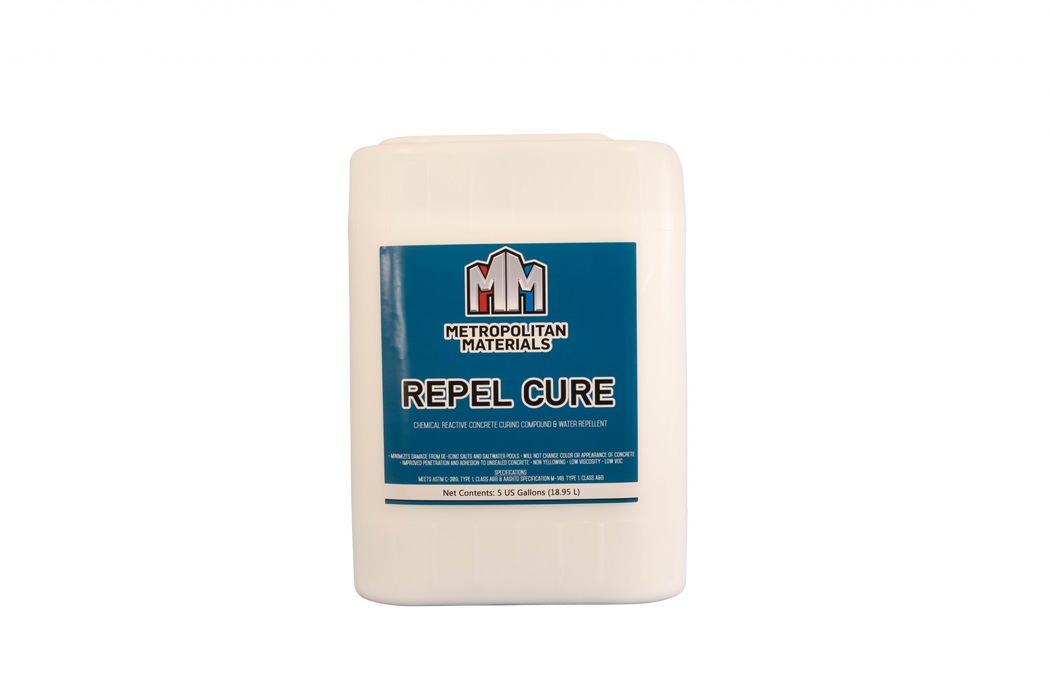
Start Shopping
Browse our selection of concrete products available.

Concrete is a durable and long-lasting material, but it requires proper maintenance to keep it looking its best. One of the most effective ways to protect concrete surfaces is by applying a sealer. Two of the most commonly used types of concrete sealers are water-based and solvent-based. Each has its own advantages, disadvantages, and ideal applications. In this article, we will explore the differences between these two types of sealers and discuss how popular products like Repel Cure, GEM Seal, and Aggreseal compare.
Concrete sealers provide a protective layer that guards against water, chemicals, oils, and environmental wear. This helps extend the life of concrete surfaces, preventing cracking, scaling, and staining. When choosing a sealer, understanding whether a water-based or solvent-based formula is more suitable for your project is critical.
Water-based concrete sealers are formulated using water as the primary carrier of the active sealing ingredients. These sealers are popular due to their ease of use, eco-friendliness, and low VOC (volatile organic compound) content, making them ideal for indoor applications or areas with stricter environmental regulations.
Repel Cure from Surf Koat is a high-quality water-based sealer that provides a breathable, protective finish. It is ideal for outdoor use and offers excellent protection against UV rays, and water. It is the perfect sealer for your classic, broom finish concrete. Since it’s water-based, it emits low VOCs and is user-friendly, making it a great choice for residential applications where environmental safety is a priority.

Solvent-based sealers use solvents such as acrylic copolymer as the carrier for the active sealing ingredients. These sealers are well-known for their durability and ability to create a glossy, wet look on concrete surfaces, which makes them popular for decorative finishes.
GEM Seal from Solomon Colors is a solvent-based acrylic sealer that offers a glossy finish, providing that sought-after "wet look" while enhancing the color of the concrete. It is ideal for high-traffic areas and outdoor applications where durability is essential. GEM Seal offers excellent resistance to abrasion and chemicals, making it suitable for patios, driveways, and commercial spaces.
Aggreseal is a solvent-based sealer from Surf Koat that is designed specifically for decorative concrete surfaces such as stamped concrete and exposed aggregate. It offers a durable, high-gloss finish and comes in a unique brown tint that enhances the natural colors of the surface. With its excellent resistance to chemicals, UV rays, and weathering, it’s a perfect choice for outdoor decorative concrete surfaces that need long-lasting protection and aesthetic enhancement. At Metropolitan Materials, Aggreseal comes in Brown, Clear and Gray. The respective colors help ensure that a project has a widespread, consistent tone.

| Feature | Water-Based Sealer | Solvent-Based Sealer |
|---|---|---|
| VOC Content | Low | High |
| Durability | Moderate, ideal for light to medium traffic areas | High, suitable for heavy traffic and exposure to chemicals |
| Finish | Natural, satin finish | Glossy, wet-look finish |
| Environmental Impact | Environmentally friendly | Higher environmental impact due to VOC emissions |
| Application | Easy cleanup with soap and water | Requires solvents for cleanup |
| Best For | Indoor and environmentally conscious projects | Outdoor, decorative concrete, and high-traffic areas |
The choice between a water-based and solvent-based concrete sealer depends on the specific needs of your project. If you are working indoors, prioritize low VOCs, or prefer a natural look, a water-based sealer like Repel Cure is likely your best option. For outdoor applications or when a high-gloss, decorative finish is desired, a solvent-based sealer like GEM Seal or Aggreseal-Brown may be more appropriate.
By understanding the key differences and carefully considering the application environment, you can ensure the longevity and appearance of your concrete surfaces for years to come. Here at Metropolitan Materials, we have a variety of options when it comes to water-based and solvent-based concrete sealers.

Browse our selection of concrete products available.

We're just a message away from ensuring you find the perfect solution for your project.

Create an account now to unlock amazing benefits like faster reordering, new product announcements, sales details and more!
{"one"=>"Select 2 or 3 items to compare", "other"=>"{{ count }} of 3 items selected"}